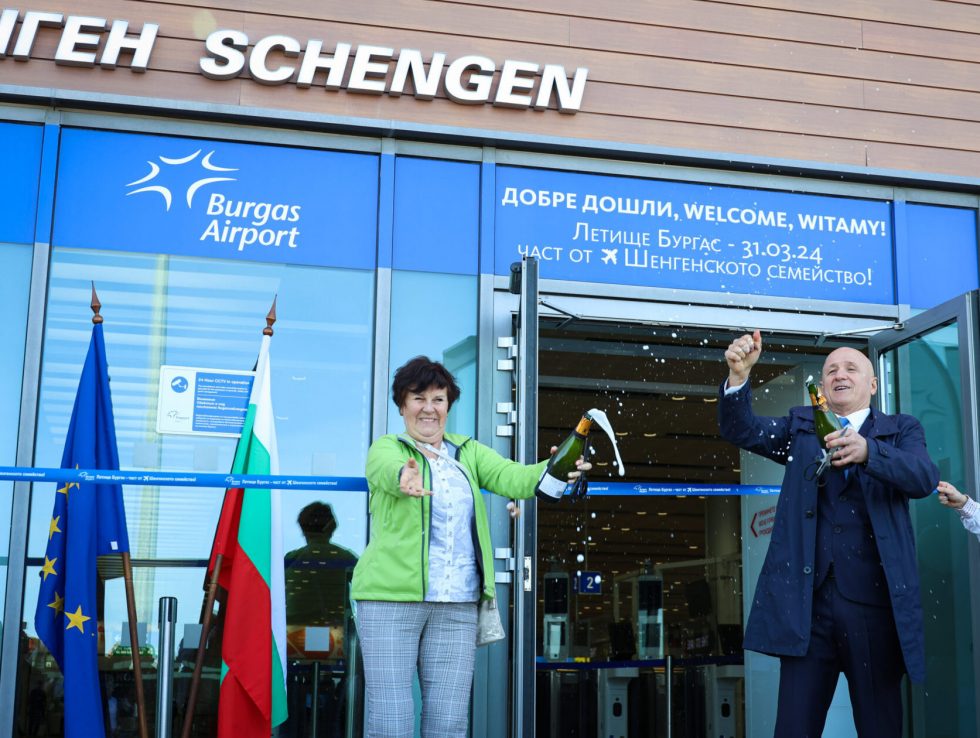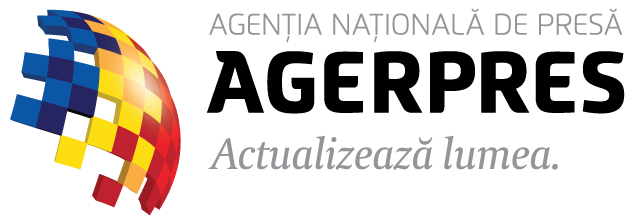Tough stances on migration, new border checks: Schengen, are you OK? (enr)

With Germany ramping up border controls earlier this month and other EU countries contemplating stricter migration rules, the Schengen zone of free movement - and no internal border checks - seems to be crumbling.
In mid-September, Germany expanded border controls to the frontiers with all its nine neighbours in hopes of curbing the flow of irregular migrants, addressing threats from Islamist terrorist groups and cross-border criminal organisations. The move has sparked protests from other EU members.
Germany lies at the heart of Europe and of the visa-free Schengen zone, which is designed to allow the free movement of people and goods, long a core idea of the European project.
After deadly knife attacks in the German cities of Mannheim and Solingen causing outrage and horror, long-standing debates over how to handle migrants seeking asylum in Germany have intensified in recent weeks.
The suspected attacker in Solingen, a Syrian citizen, had evaded an order to be deported from Germany to Bulgaria, where he first entered the EU.
Poland, Austria and Greece have been among countries to complain about the introduction of border checks, which are set to last an initial six months.
Polish Prime Minister Donald Tusk condemned the move as 'unacceptable' and his Greek counterpart Kyriakos Mitsotakis said in an interview with Talk Radio that an 'unilateral abolition of Schengen' was not the answer.
The Czech Interior Minister Vit Rakuan said that he does not expect any change at the Czech-German border.
Border controls with Poland, the Czech Republic, Austria and Switzerland were already in place before and have been expanded to the borders with France, Luxembourg, the Netherlands, Belgium and Denmark.
With national elections looming in Germany next year, the attacks in the country put intense political pressure on Chancellor Olaf Scholz's government to toughen its stance on migrants and asylum seekers.
But this is not exclusive to Germany: The success of far-right parties in elections in key European countries is prompting even centrist and left-wing governments to tighten policies on migration, creating cracks in European unity and sparking concern among activists.
Experts: Border checks won't curb illegal migration
The UN High Commissioner for Refugees Filippo Grandi told the German daily Stuttgarter Zeitung there were 'alternatives to restrictive measures' such as turning migrants back at the border. 'A fixation on border controls will not deter the truly desperate,' Grandi said.
'The reintroduction of temporary internal border controls in the Schengen area is almost the automatic consequence of the lack of a common understanding of who is allowed to enter and for what purpose', Jean-Louis De Brouwer, director for European affairs at the Egmont Royal Institute for International Relations in Brussels, told Romanian news agency AGERPRES.
In his opinion, the reintroduction of internal border controls in Schengen would, in one way or another, 'be detrimental to the internal market'. He believes that very soon - it could be at the next European Council - the member states will have to answer a very difficult question: whether they want to keep Schengen or not.
Migration researcher Gerald Knaus does not expect the extension of border controls to all German land borders to lead to a noticeable decrease in the number of asylum seekers. 'Anyone who expects border controls to lead to a reduction in irregular migration is creating an expectation that is unrealisable,' he said on Deutschlandfunk radio.
Border controls were also not a means of preventing Islamist terrorism, for example, as many of the perpetrators became radicalised in Germany, the researcher further said.
What is Schengen and who's part of it?
The border-free Schengen area allows free movement for more than 425 million EU citizens and non-EU citizens who legally live, work, travel or study in the European Union.
Named after a small village in Luxembourg, the Schengen zone started as an intergovernmental project with five countries in 1985: Luxembourg, Germany, France, Belgium and Netherlands.
In waves, the Schengen zone grew and now incorporates most EU countries - except Cyprus and Ireland - as well as non-EU states Iceland, Norway, Switzerland and Lichtenstein. Today, it is the biggest zone of free movement in the world.
According to the Council of the European Union, 3.5 million people cross internal borders every day.
Even though Germany's decision has sparked controversy, it's not the only Schengen member having border checks in place. Austria, Denmark, France, Italy, Norway, Slovenia, Sweden also have temporary measures in place.
The Court of Justice of the European Union (CJEU) ruled in 2022 that a Member State can only extend temporary border controls if it is faced with a new threat affecting its public policy or its internal security that is different from the threat initially identified.

Burgas (31 March 2024): The first flight after Bulgaria’s accession to the Schengen area by air is welcomed at Burgas Airport. Passengers arriving today from Schengen member states pass through the airport terminals without passport control. Pictured: the first passenger from Krakow, Poland (left) and Burgas Airport Director Georgi Chipilski (right).
Phohto: Христо Стефанов/BТА
Bulgaria and Romania: Half in, half out?
As of March 31, 2024, Bulgaria and Romania have partially joined the Schengen area. Controls for internal sea and air travel have been lifted while controls at land borders remain. EU officials expect a decision on full Schengen membership until the end of the year.
In December last year, Austria was the only EU country that did not support a complete abolition of border checks at the Bulgarian and Romanian Schengen borders.
Countries such as Spain and Slovakia are in favour of Bulgaria and Romania becoming full members of the Schengen zone.
'I am very pleased that in 2024 internal air and sea controls between Bulgaria and Romania and the other Schengen countries will become a thing of the past, after twelve years of negotiations,' said Spanish Interior Minister Fernando Grande-Marlaska last year during Spain's presidency of the Council of the European Union.
Visiting Austria, Slovak President Peter Pellegrini stated that the Schengen accession of the two countries is 'important' for investments and also for the effective protection of the EU's external borders.
The Head of the European Commission Representation to Bulgaria, Yordanka Chobanova said, on Tuesday in Sofia a decision about Bulgaria's and Romania's entry into the Schengen area by land is expected by the end of this year.
In July, a report by the Institute of Economic Research with the Bulgarian Academy of Sciences showed that the direct losses for Bulgaria from the delay of full accession to Schengen amounted to over 400 million Euro.
Schengen and Migration: Austria's veto and its new migration portfolio
Austria will no longer be able to use the migration problem as a pretext to block Bulgaria and Romania from Schengen, Romanian MEP Siegfried Mureşan, who is a Vice-President of the European People's Party (EPP), said in a BTA interview in Strasbourg last week.
'Austria has been given the portfolio of Commissioner for Migration and Home Affairs, so it has the tool it needs to solve migration problems. The solution to this problem will depend on their own commissioner,' Mureşan said.
Austria's EU commissioner-designate is Finance Minister Magnus Brunner who is a member of the Austrian People's Party (ÖVP). The ÖVP belongs to the EPP, a centre-right group in the European Parliament.
European Commission President Ursula von der Leyen's decision to give the migration portfolio to Brunner has stirred some controversy in Brussels as he has little experience on the subject.
Taking Austria's opposition of the Romanian and Bulgarian Schengen accession and the fact that the migration and internal affairs portfolio has been assigned to an Austrian into account, a Commission spokesperson said that Commissioners do not represent their Member State of origin, but work to contribute to the EU project, in the interest of all European citizens.
The President of the European Movement Austria (EBÖ), Christoph Leitl, said: 'This is an opportunity for Austria, namely to turn criticism into participation!'
The new European Commissioners are yet to pass their 'grilling' by the European Parliament before the new Commission can be finally confirmed. Historically, not all candidates pass which means their countries need to nominate a new person.
The content is based on news by agencies participating in the European Newsroom (enr, a cooperation project between news agencies from all over Europe) - in this case AFP, AGERPRES, APA, BTA, CTK, dpa, EFE, STA.AGERPRES
Alte știri din categorie
AEI head predicts post-capping end-consumer electricity prices between RON 1.03 - 1.15 per kWh
The price of electricity at the end consumer after the price cap is removed on April 1, 2025 will range between RON 1.03 - 1.15 per kWh, VAT included, which would mean a 21% price increase for those with a consumption of over 255 kWh/month and by 51% for those who use less than 100 kWh/month, said president of the Smart Energy Association (AEI) Dumitru Chisalita, as he made
Health official: Hospital-acquired infections' reporting rate significantly up, likely to reach EU average in 2 - 3 years
Speaking on Thursday in Ploiesti about reporting hospital-acquired infections, Secretary of State with the Health Ministry, Dr. Alexandru Rogobete, said that the reporting rate has increased significantly in the last two years from 0.1% to 3.2%, and voiced his conviction that in two or three years it will probably reach the EU average. "Let me tell you wh
At EPC round-table meeting on migration, President Iohannis advises short- and long-term solutions
AGERPRES special correspondent Gheorghe Pietrar reports: President Klaus Iohannis, attending on Thursday a round-table meeting on migration organized on the occasion of the fifth European Political Community Summit in Budapest, spoke in favor of "short- and long-term" solutions being identified. "At the round-table meeting on migration, at the E
American, Romanian experts discuss trends in complex financial investigations, money laundering mechanisms
American and Romanian experts from the public and the private sector met on November 6 and 7 in Brasov to discuss the key trends in complex financial investigations and money laundering mechanisms, in an event organized by the U.S. Department of Justice's Office of Overseas Prosecutorial Development, Assistance and Training (OPDAT) and the National Anticorruption Directo
Gov't approves bill for purchase of 32 F-35 fighter jets
The government approved on Thursday a bill for the purchase of 32 F-35 fighter jets, the Executive's spokesman Mihai Constantin announced. "A bill was approved and sent to Parliament in a fast-track procedure, proposing that the Government of Romania award the Government of the United States of America the 'Offer and Acceptance' contracts for
Over 700 dentists participating in SRRO Congress in Iasi
Over 700 dentists are participating in the 16th edition of the Congress of the Romanian Society of Oral Rehabilitation (SRRO), which is taking place from November 7 to 9 at the Palace of Culture in Iasi. The scientific event is held under the aegis of the "Grigore T. Popa" University of Medicine and Pharmacy in Iasi, in partnership with some of the m
DefMin Tilvar: Republic of Moldova became a full member of SEDM during Romania's chairmanship
The Republic of Moldova became a full member of the South-Eastern Europe Defence Ministerial Process (SEDM) during Romania's chairmanship of this format, Romania's Defence Minister Angel Tilvar said on Wednesday, during a meeting with his counterpart from the neighboring country Anatolie Nosatyi. According to a press release the National Defence Minist
Romania, Bulgaria consider creating joint sightseeing routes for Japanese tourists
Romania and Bulgaria are planning to create a series of joint sightseeing routes for Japanese tourists who want to visit the region, announced Minister of Economy, Entrepreneurship and Tourism Stefan-Radu Oprea, who met on Wednesday with a Japanese delegation led by Vice-Minister of Economy, Trade and Industry Shinji Takeuchi. The talks were aimed at deepening bilateral rela
Incumbent Agriculture Commissioner advocates separate CAP budget
The Common Agricultural Policy (CAP) needs a separate budget, and farmers must be sure that they will receive their money without further discussions about the rule of law or other requirements unrelated to the CAP, visiting European Commissioner for Agriculture Janusz Wojciechowski said on Wednesday in Bucharest The incumbent Agriculture Commissioner particip
EduMin Ligia Deca meets with general director of OECD Nuclear Energy Agency
The Minister of Education, Ligia Deca, met on Wednesday with the Director General of the Nuclear Energy Agency (NEA) of the OECD, William D. Magwood, IV, with whom she discussed the importance of study programs in the field of nuclear engineering and the need to have more specialists in this sector. "Today, I had the pleasure of meeting Mr. William D. Mag
Foreign minister Odobescu to Serbian counterpart: European path, worth every effort
The European path is worth "every effort", and Romania can offer Serbia "full support" and expertise in its EU accession steps, Foreign Affairs Minister Luminita Odobescu said Wednesday in a joint press statement with her counterpart in Belgrade, Marko Djuric, on a visit to Bucharest. "We can say in all sincerity and looking at Romania
Oradea is promoted at World Travel Market London
The city of Oradea is represented, between November 5 and 7, at the most prestigious event in the tourism industry, the World Travel Market London (WTM London), Visit Oradea informed on Wednesday, in a press release. "Participation in WTM London represents the effort of the municipality of Oradea to strengthen the presence of our city in the international
Wojciechowski: Romania has all problems in agriculture in Western Europe and specific ones in Eastern Europe
We have in Romania all the problems which we have in agriculture in Western Europe, but we have also specific problems which we have in Eastern Europe, such as those generated by the conflict in Ukraine, European Commissioner for Agriculture Janusz Wojciechowski said in Bucharest on Wednesday. While on an official visit to Romania, the commissioner participate
Official Daraban: Romania and Pakistan need to get involved in joint-venture projects through export-import banks
Indragra&Indagra Food, the largest event of the agricultural industry and the food industry in the Eastern Europe region, can represent a platform for Pakistani companies in the field to identify potential business partners, from Romania and Europe, said the chair of the Romanian Chamber of Commerce (CCIR), Mihai Daraban. The President of the CCIR had, on
Ciolacu, meeting with Japanese delegation:Government has modernized legislative framework to attract foreign investments
Prime Minister Marcel Ciolacu declared on Tuesday that Romania's role as a factor of stability in Europe and in the region, as well as its geostrategic, economic and political advantages qualify our country as a destination for investors. The Head of Government had, at the Victoria Palace, a meeting with a delegation of Japanese investors from the fields o

















